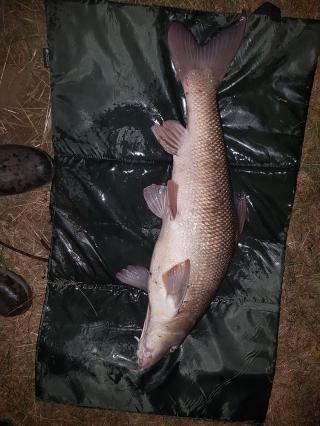Last Thursday Chris Harber was fishing with some luncheon meat in the deeper water at Bramley. He latched into a big fish which gave him the proper run around- particularly at the net.
Chris has caught a lot of big grass carp at Bramley over the years in the 20-30lb bracket but this one felt chunky with some extra girth. Martin Tribe - the only other angler on the lake - helped Chris weigh the fish which turned the scale round to a healthy 41lb 3 oz. Surely a GAS record and a fabulous fish to have in our waters.
Well done Chris!

We have received reports of some great catches tis week.
Edd Duncan Weeks caught a 14lb 5 oz barbel from Eashing and Matt Harman a cracking 3lb 8 oz rudd from Broadwater.
Pictures of the catches are posted in our members galleries.

Added by Dave Ewing on June 26, 2025

Added by Dave Ewing on June 04, 2025

Added by Dave Ewing on June 03, 2025

Added by Dave Ewing on June 03, 2025

Added by Dave Ewing on June 03, 2025

Added by Dave Ewing on June 01, 2025

Added by Dave Ewing on May 01, 2025

Added by Dave Ewing on April 25, 2025

Added by Dave Ewing on April 18, 2025

Added by Roger Howe on April 15, 2025


.jpg)
